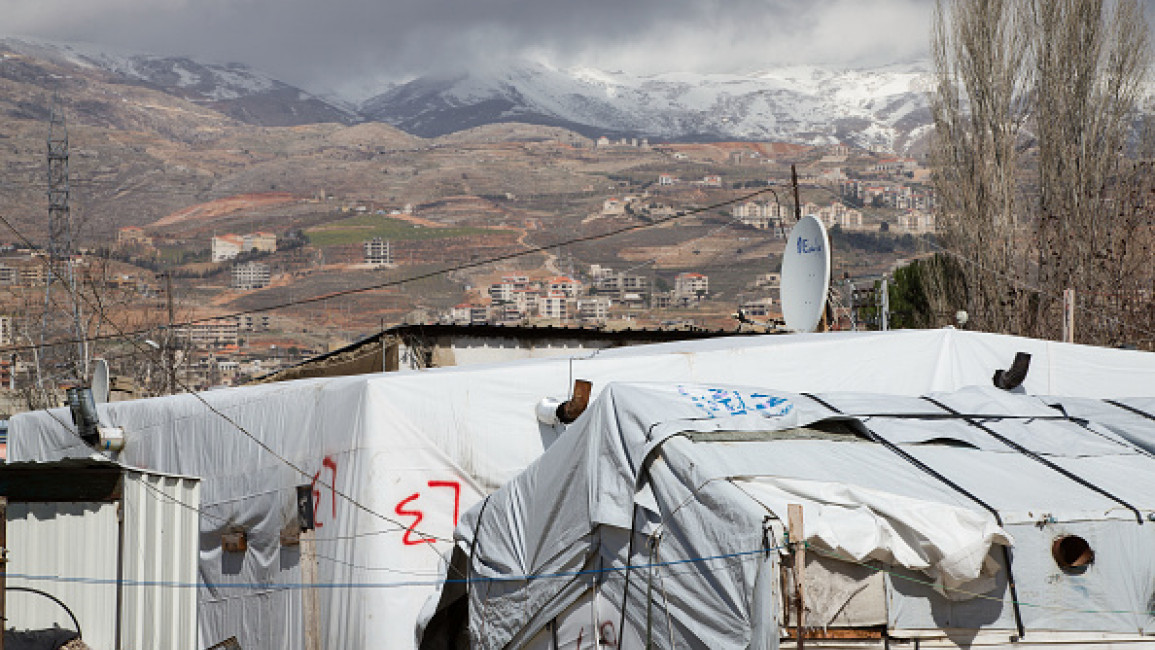Lebanon to bill Syrian and Palestinian refugees for electricity use
Lebanon appealed to the UN this week to help cover the electricity expenses of Syrian and Palestinian refugees living in the country, repeating calls for the deportation of Syrian refugees to Syria.
Caretaker Energy Minister Walid Fayyad said on Monday that refugees will now be billed for their electricity use.
"The cost of electricity consumed by refugees ... must be paid through electricity tariff," Fayyad said.
After meeting with UN agencies, Fayyad said an agreement was reached to form two technical committees; one to deal with the electricity consumption in Syrian camps and the other in Palestinian camps.
"We cannot allow this issue to disturb the financial balance of Lebanon's state power company, which was on the brink of collapse," Fayyad said.
The electricity problem in Lebanon has been a long-standing issue, costing the treasury 40 percent of the country's sovereign debt.
Since 2019, Lebanon has been reeling from one of the worst economic crises in history. The country's shortage of US dollars has restricted fuel imports to run power stations.
Lebanon suffers frequent blackouts, and many households and businesses rely on private diesel generators for electricity.
Renewed calls for return of Syrian refugees
Lebanon has been trying to push for the forced return of Syrian refugees to their homeland, with caretaker Foreign Minister Abdallah Bou Habib repeating calls on Thursday at a Syria aid-pledging conference in Brussels.
Bou Habib said that Lebanon needed foreign aid so the country does "not turn into a massive refugee camp in the Mediterranean".
"Lebanon is facing political and economic issues that are enlarged by the presence of Syrian refugees in Lebanon despite the donor countries’ support to Lebanon," Bou Habib added.
In an interview in May, Bou Habib said that refugee presence in Lebanon was costing an estimated $6bn US dollars instead of the $3bn US dollars assessed by the World Bank in 2013.
UNHCR suspends aid handouts in US dollars
Bou Habib's comments came after the Office of the United Nations High Commissioner for Refugees (UNHCR) announced the temporary suspension of cash assistance to refugees in US dollars last month.
The UNHCR said the move was a result of meetings with caretaker Prime Minister Najib Mikati and caretaker Minister of Social Affairs Hector Hajjar, who requested a halt to the use of dual currency payments to refugees until an appropriate mechanism was established.
The UNHCR had previously announced that refugees would be able to receive their aid in the currency of their choice – Lebanese pounds or dollars, much to the dismay of the Beirut government who slammed the move as "a great crime against Lebanon".
Hajjar said it would encourage refugees to stay in Lebanon and had urged the UN agency to consider handing out aid to internally displaced people inside Syria instead.
Cash aid was previously handed over by the UNHCR in dollars to Lebanese institutions in charge of their distribution, before being converted into Lebanese pounds to be paid to refugees.
According to official figures from the UN, Lebanon - which has a population of about five million people - currently hosts at least 1.5 million Syrian refugees.
The actual number is likely to be higher as many refugees are not officially registered.



